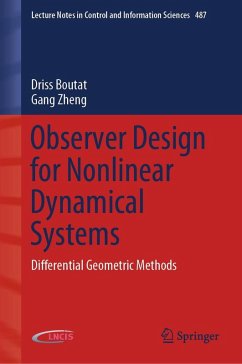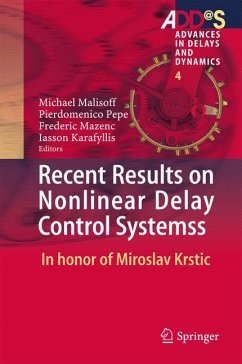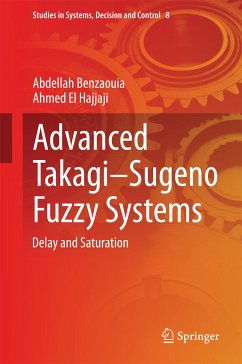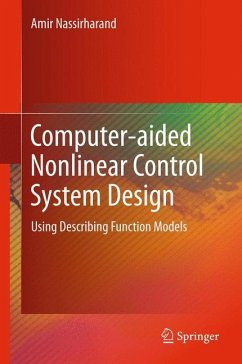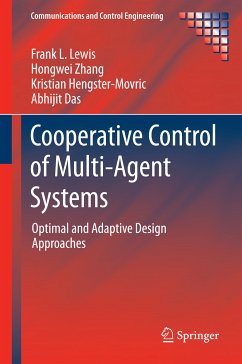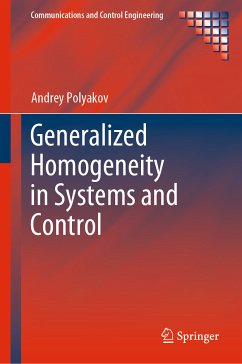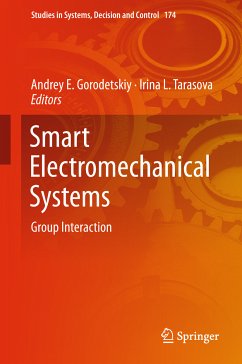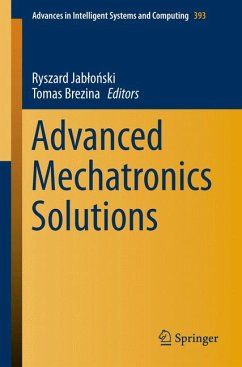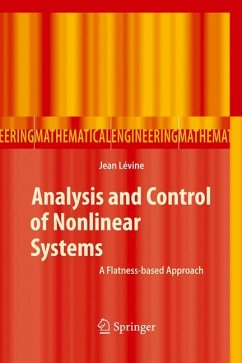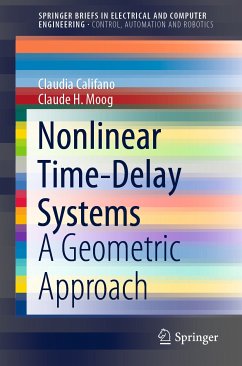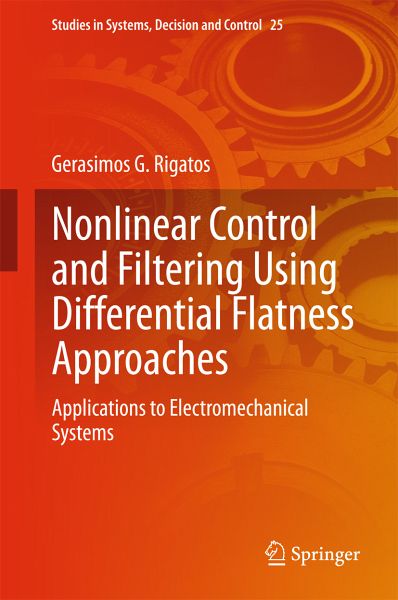
Nonlinear Control and Filtering Using Differential Flatness Approaches (eBook, PDF)
Applications to Electromechanical Systems
Versandkostenfrei!
Sofort per Download lieferbar
160,95 €
inkl. MwSt.
Weitere Ausgaben:

PAYBACK Punkte
80 °P sammeln!
This monograph presents recent advances in differential flatness theory and analyzes its use for nonlinear control and estimation. It shows how differential flatness theory can provide solutions to complicated control problems, such as those appearing in highly nonlinear multivariable systems and distributed-parameter systems. Furthermore, it shows that differential flatness theory makes it possible to perform filtering and state estimation for a wide class of nonlinear dynamical systems and provides several descriptive test cases.The book focuses on the design of nonlinear adaptive controller...
This monograph presents recent advances in differential flatness theory and analyzes its use for nonlinear control and estimation. It shows how differential flatness theory can provide solutions to complicated control problems, such as those appearing in highly nonlinear multivariable systems and distributed-parameter systems. Furthermore, it shows that differential flatness theory makes it possible to perform filtering and state estimation for a wide class of nonlinear dynamical systems and provides several descriptive test cases.
The book focuses on the design of nonlinear adaptive controllers and nonlinear filters, using exact linearization based on differential flatness theory. The adaptive controllers obtained can be applied to a wide class of nonlinear systems with unknown dynamics, and assure reliable functioning of the control loop under uncertainty and varying operating conditions. The filters obtained outperform other nonlinear filters in terms of accuracy of estimation and computation speed. The book presents a series of application examples to confirm the efficiency of the proposed nonlinear filtering and adaptive control schemes for various electromechanical systems. These include:
· industrial robots;
· mobile robots and autonomous vehicles;
· electric power generation;
· electric motors and actuators;
· power electronics;
· internal combustion engines;
· distributed-parameter systems; and
· communication systems.
Differential Flatness Approaches to Nonlinear Control and Filtering will be a useful reference for academic researchers studying advanced problems in nonlinear control and nonlinear dynamics, and for engineers working on control applications in electromechanical systems.
The book focuses on the design of nonlinear adaptive controllers and nonlinear filters, using exact linearization based on differential flatness theory. The adaptive controllers obtained can be applied to a wide class of nonlinear systems with unknown dynamics, and assure reliable functioning of the control loop under uncertainty and varying operating conditions. The filters obtained outperform other nonlinear filters in terms of accuracy of estimation and computation speed. The book presents a series of application examples to confirm the efficiency of the proposed nonlinear filtering and adaptive control schemes for various electromechanical systems. These include:
· industrial robots;
· mobile robots and autonomous vehicles;
· electric power generation;
· electric motors and actuators;
· power electronics;
· internal combustion engines;
· distributed-parameter systems; and
· communication systems.
Differential Flatness Approaches to Nonlinear Control and Filtering will be a useful reference for academic researchers studying advanced problems in nonlinear control and nonlinear dynamics, and for engineers working on control applications in electromechanical systems.
Dieser Download kann aus rechtlichen Gründen nur mit Rechnungsadresse in A, B, BG, CY, CZ, D, DK, EW, E, FIN, F, GR, HR, H, IRL, I, LT, L, LR, M, NL, PL, P, R, S, SLO, SK ausgeliefert werden.




